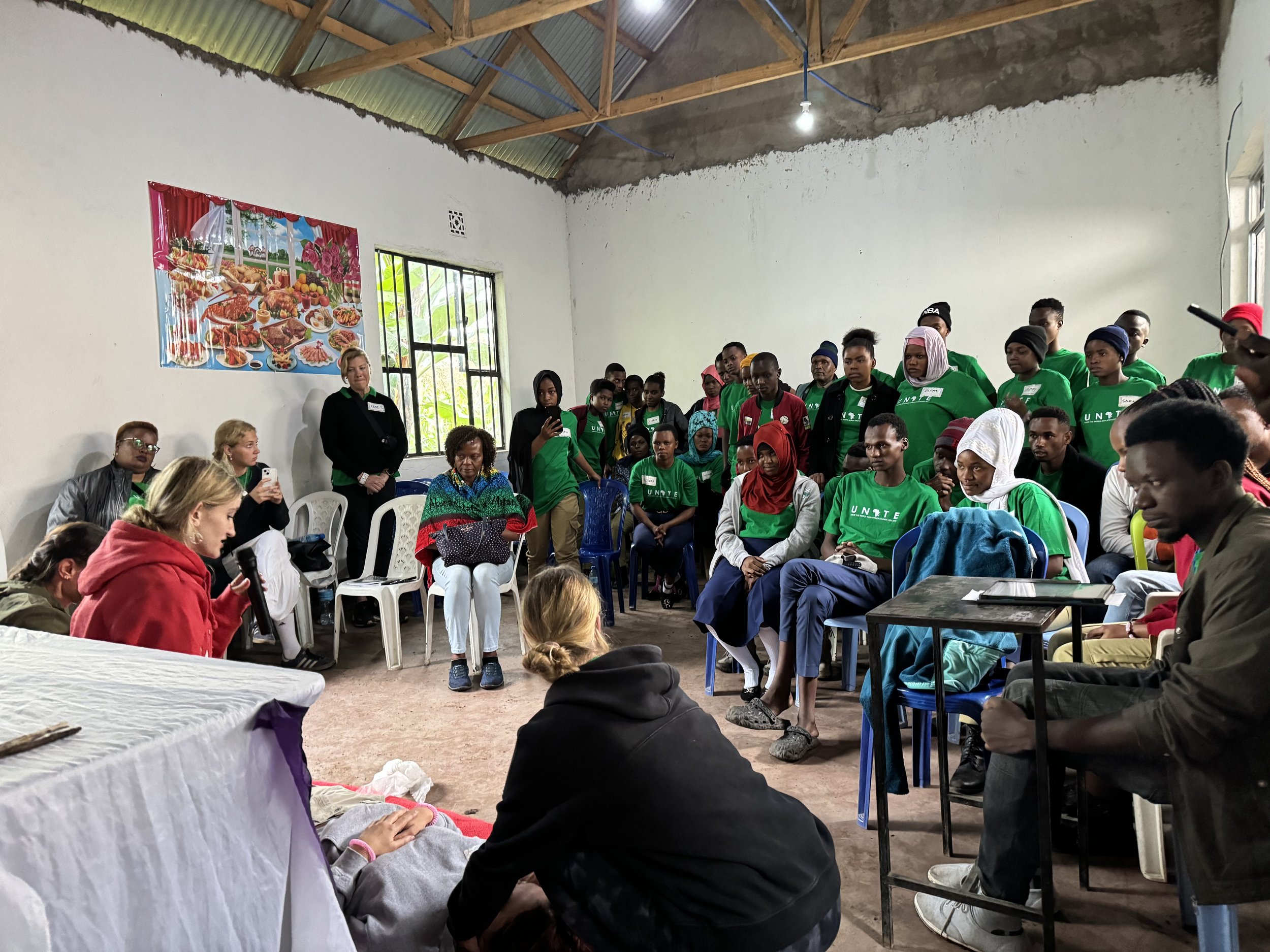Earlier this summer, Unite hosted a series of First Aid trainings (CPR, burn care, stop the bleed, when to see a doctor, how to prevent the spread of disease, etc.) designed and led by American EMT & pre-med student Scarlett Gerber.
In Tanzania, especially throughout remote rural areas, people often have little to no education about First Aid, proper burn care, or CPR. They are unaware of key warning signs that signal it is time to take an injured or sick person to a hospital. (Millions of people live far too far from proper medical care and do not have the funds ncessary to pay for such care anyway.) So people often turn to local witchdoctors/traditional healers and use traditional remedies to deal with emergencies. Unite’s goal in providing these ongoing trainings is to share proven scientific facts and intervention methods to build a culture of awareness and preparedness that can improve outcomes and, ultimately, save lives.
“In many communities across Tanzania, there is a widespread lack of knowledge about proper emergency response that drives people to traditional healers, which can result in preventable tragedies and fatalities. These trainings have empowered participants to act confidently and effectively during emergencies.”
– Unite Scholar Michael Charles, a first-year medical student at Kairuki University in Dar es Salaam.
Examples of traditional methods used across Tanzania (as provided by Michael who is pictured above at Kairuki medical school in Dar es Salaam) include:
· Burns: Traditional treatments include applying cooking oil or honey to affected areas. While these methods are intended to cool the burn, they can cause infections and hinder proper healing.
· Large wounds: Traditional remedies include applying herbal pastes or crushed leaves directly to the wound to stop bleeding and promote healing. While some herbs have medicinal properties, improper use can lead to infection or delays in getting necessary medical treatment.
· Heart attacks: Traditional treatments include strong teas or herbal concoctions that “calm the heart.” These are given when one is not aware of the critical and timely need for appropriate medical interventions or how to administer CPR when the heart stops.
· Strokes: For strokes, there is the belief that pricking fingers or ears to release blood can help relieve symptoms.
“I was happy and inspired to see how quickly the Unite Scholars took to the material with both a readiness and desire to learn. We did have to shift the trainings to be more appropriate for local settings where medical supplies and doctors are not readily available. For example, we taught them how to make tourniquets and splints from such everyday materials as shirts and sticks.”
-- Scarlett Gerber, an EMT in Westport CT and a pre-med student at Wash U in St. Louis
Scarlett (center) leads a training at the Cambridge College in Usa River, Tanzania, alongside Unite teammates Katharine Wells and Constance Schmults.
“CPR trainings are extremely rare in our communities, yet they are essential to give people the confidence that they can do something to help. I myself did not learn CPR until I was in medical school, and until today I have only witnessed it used once and that was in a hospital.”
– Unite Medical Student Zainabu Seiph, a 3rd year student of surgery at KCMC in Kilimanjaro.
Zainabu Seiph was appointed (above) by the President of the Tanzanian Higher Learning Institution’s Student Organization as the Commissioner for all university students living with special needs.
Unite visitor Alicia Murphy “high 5s” Unite Food Program’s Operations Manager Stanley Arthur after he successfully bandages and sets a “broken” leg.
Unite visitor Constance Schmults teaches Unite Brave Widow Janeth Mbwilo how to check for signs that a patient is breathing.
Unite Club members at Cambridge College in Usa River, Tanzania, watch while Scarlett and her team demonstrate how to stabilize a patient.
“In Tanzania many people do not have medical insurance and are therefore hesitant to take loved ones to hospitals for fear of costs and uncertainty in the medical system. So they stay home, hope and pray, and eventually consult witchdoctors/traditional healers. Knowing CPR, wound care, First Aid, and when it is time to see a doctor is of critical importance in saving lives.”
– Unite Program Director Anty Marche (pictured above in front chair on the left)







